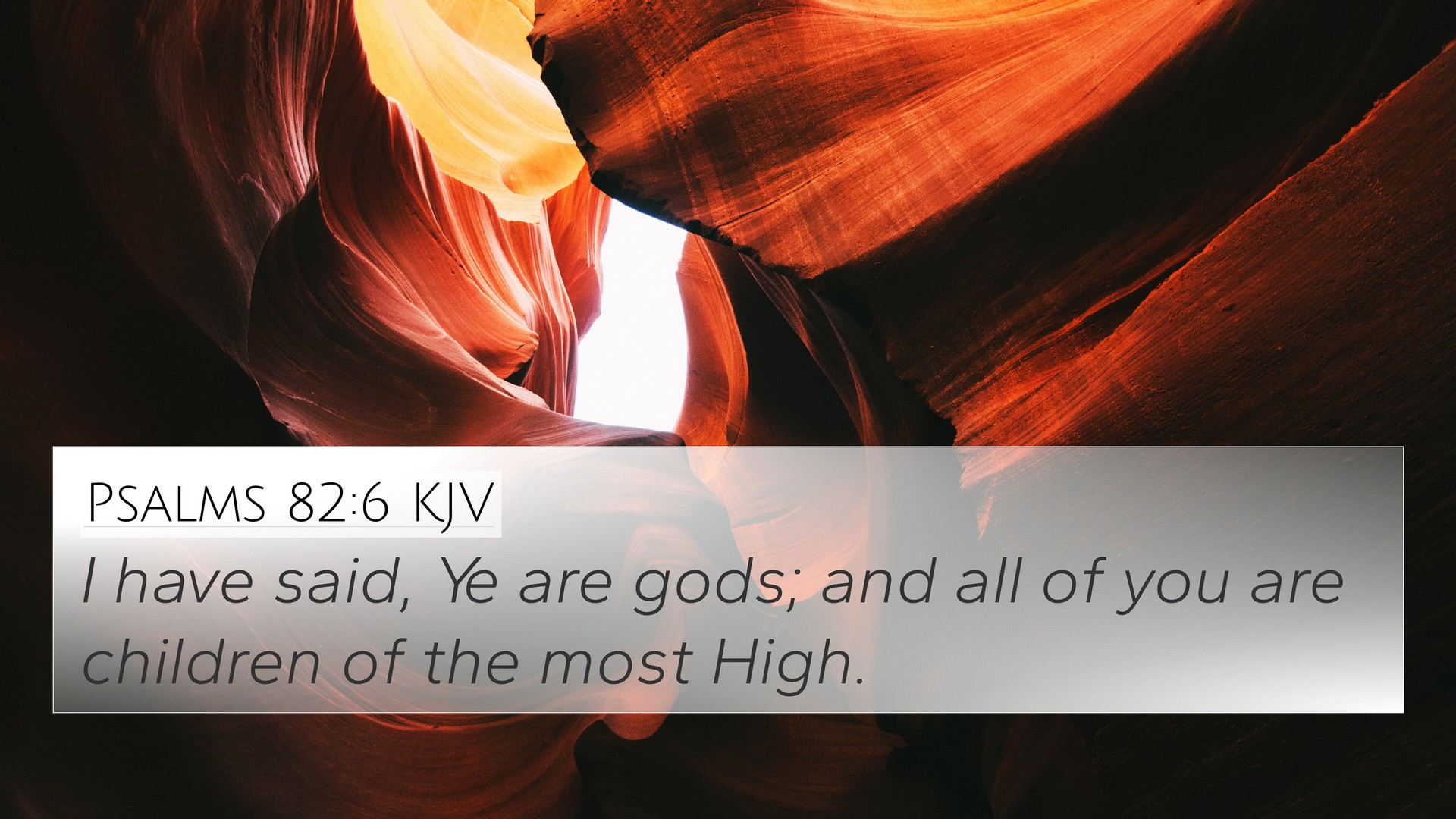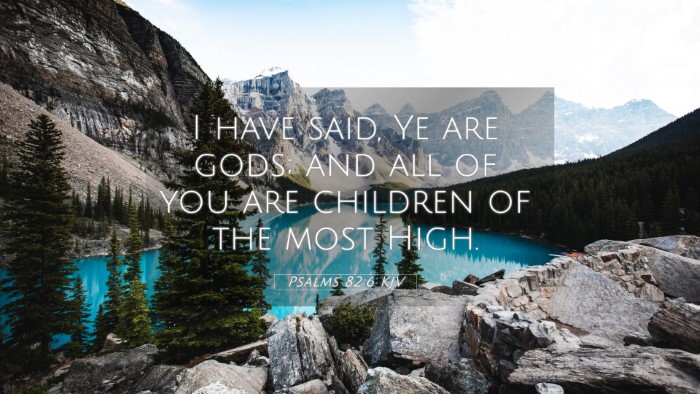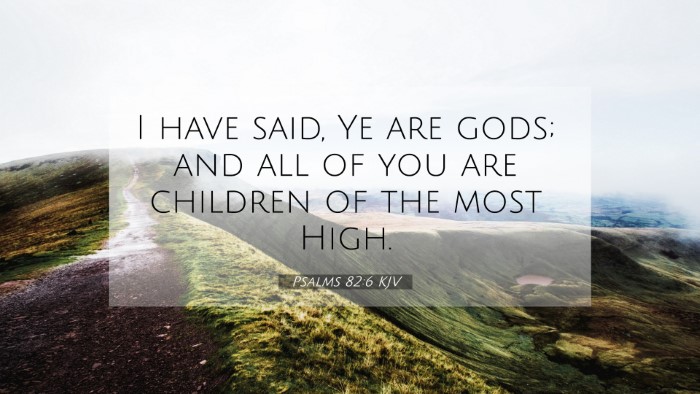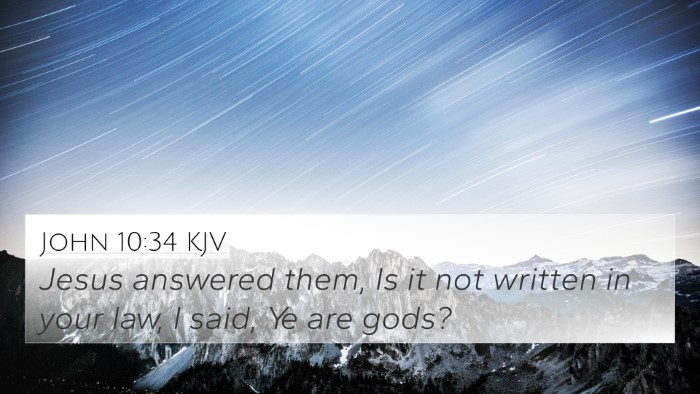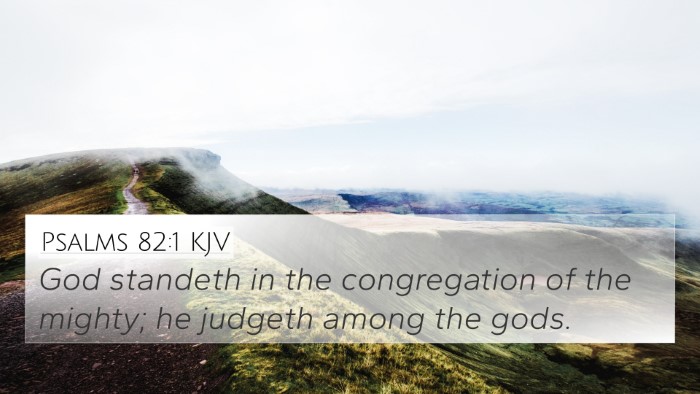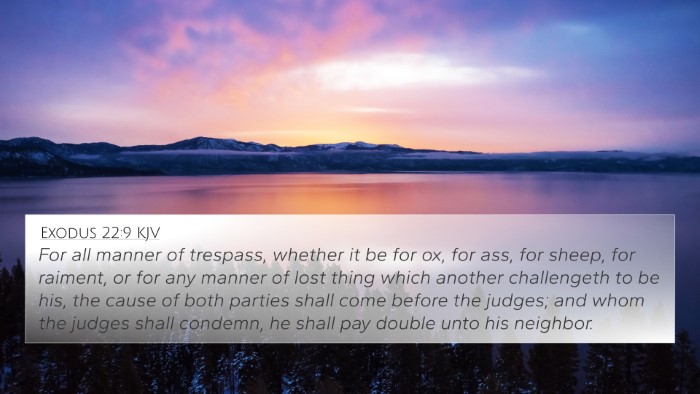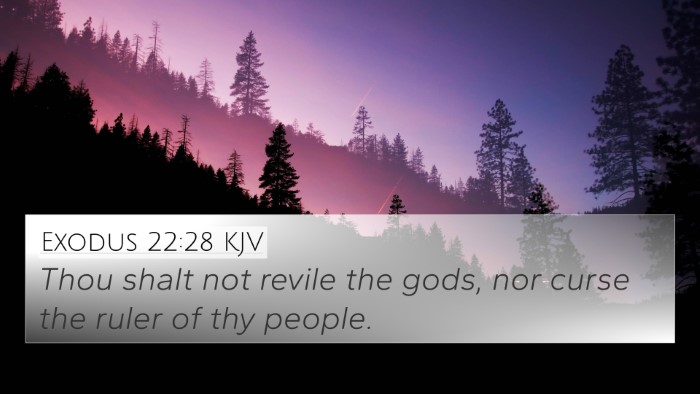Understanding Psalms 82:6
Psalms 82:6 states, "I said, Ye are gods; and all of you are children of the most High." This verse is often explored for its deep theological implications and its connections to various themes throughout Scripture.
Verse Context and General Meaning
This verse is part of a Psalm that addresses the unjust judgments made by earthly rulers. The psalmist, believed to be Asaph, critiques leaders who fail to uphold justice and protect the oppressed. By referring to them as "gods," the psalmist likely emphasizes their responsibility and the authority they wield, which should reflect God's justice and righteousness.
Commentary Insights
The insights from various commentaries expand our understanding of this verse:
-
Matthew Henry: He suggests that calling them "gods" is a recognition of their position, yet also a rebuke for their failures. God’s intention is for rulers to act like His representatives on earth.
-
Albert Barnes: Barnes emphasizes that while they may be called "gods," they are ultimately mortal and will face judgment if they fail to fulfill their obligations to the people they govern. This highlights the temporary nature of earthly authority.
-
Adam Clarke: Clarke provides additional depth by exploring the Hebrew term used in this context. He notes that it can mean "judges" and relates the verse to the idea that people in authority should reflect God’s moral order.
Cross-References
To fully grasp the implications of Psalms 82:6, it is helpful to cross-reference it with other verses in the Bible. Here are some notable connections:
- John 10:34-36: Jesus quotes this Psalm, presenting a dialogue about His divine authority and the misinterpretation of the term "gods."
- Exodus 22:28: Addresses the treatment of rulers and judges, underscoring the importance of honoring God in their positions.
- Psalm 2:7: Illustrates God’s declaration of His Son, aligning with themes of divine sonship and authority.
- Isaiah 41:23: Calls forth the challenge to false gods, reinforcing the distinctness of God’s nature compared to that of human rulers.
- Matthew 5:9: Jesus' teaching on peacemakers serves as a contrast to the injustices condemned in Psalms 82.
- 1 Peter 2:9: Affirms believers’ identity as a "royal priesthood," linking to the concept of divine children as found in Psalms 82.
- Romans 8:14-17: Explores the theme of being children of God, reflecting on identity and authority related to divine heritage.
- Jeremiah 10:10: Expresses the sovereignty of God over all earthly authorities, paralleling the critical view of flawed rulers in Psalms 82.
Applying the Insights
The implications of Psalms 82:6 encourage readers to reflect on the nature of authority and justice. Here are some applications:
- Recognize the weight of responsibility that comes with power and leadership.
- Consider the divine standards against which leaders will ultimately be judged.
- Encourage the pursuit of justice and the defense of the oppressed in our communities.
Thematic Connections
This verse and similar ones create a web of thematic connections across both Testaments. Linking these scriptures enhances our understanding of God’s justice, human responsibility, and the divine authority given to us as believers.
By examining these themes, readers can engage in deeper studies using resources such as:
- Bible concordance
- Bible cross-reference guide
- Tools for Bible cross-referencing
- Comprehensive Bible cross-reference materials
Conclusion
Psalms 82:6 serves as a powerful reminder of the elevated position that God grants to humanity, reflecting on both our potential and our accountability. This interplay between divine authority and human governance fosters a deeper understanding of Scriptures and invites further study through comparative Bible verse analysis and cross-referenced themes.
